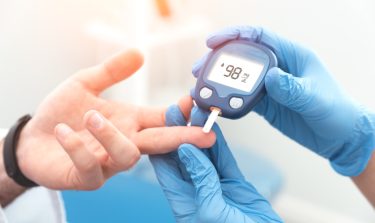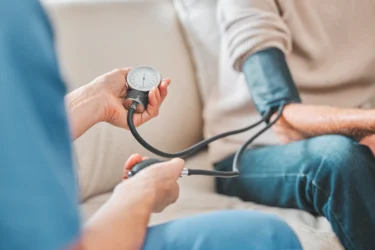10 Health Benefits Of Black Coffee
By Dr. Malavika Athavale +2 more

Get,

to manage your symptom
Get your,


4 Cr+ families
benefitted

OTP sent to 9988776655



You’ve successfully subscribed to receive
doctor-approved tips on
Whatsapp

Get ready to feel your best.

Hi There,
Download the PharmEasy App now!!


Register to Avail the Offer
Send OTPBy continuing, you agree with our Privacy Policy and Terms and Conditions

Hi There,
Sign up on PharmEasy now!!
Trusted by 4 crore+ families

OTP sent to 9988776655



You have unlocked 25% off on medicines




Code: NU25
By Dr. Malavika Athavale +2 more
Table of Contents
Coffee is a beverage enjoyed by many. Some people just want their fresh cup of coffee as soon as they get out of bed in the morning. For them, coffee is like the fuel that keeps their body battery charged up.
Black coffee is simply a mixture of boiled water and a tablespoon of coffee without the addition of milk, sugar, or honey. For lactose-intolerant people, black coffee is a boon since there is no milk required to prepare it. Although, black coffee can be healthy for the body if consumed in the right way, its taste may not appeal to many because of the bitterness. Also, it is high in terms of caffeine content and must be consumed wisely to avoid any potentially harmful effects.

In this blog, we will discuss in detail the potential health benefits of black coffee, black coffee uses, the possible risks with its regular consumption, and how you can safely include it in your routine.
Coffee is naturally rich in vitamin B-2, vitamin B-3, magnesium, potassium, and various phenolic compounds. Also, since it is black and free of milk or sugar, it contains 0% fat and carbohydrates or proteins. A cup of black coffee is also a good source of other micronutrients like manganese, sodium, riboflavin, and niacin. It is high in caffeine, which helps to make you more alert and improves performance. This is arguably the reason most people drink coffee. 100 g of brewed coffee made in tap water contains about 40 mg of caffeine. Lastly, coffee is naturally rich in antioxidants including melanoidins, which help fight inflammation in the body1.

Black coffee is a calorie-free beverage that may help maintain a healthy weight. It is rich in caffeine that may stimulate metabolism and increase your energy level, suppressing hunger.
Black coffee contains chlorogenic acid that helps to slow down the production of glucose. Hence, if you drink black coffee after a meal, it can help to slow down glucose formation. It also contains many antioxidants that can help manage weight2.
But do remember that weight loss requires a combination of regular exercise and healthy diet, and natural remedies like coffee can support these efforts better.

It is well known that caffeine stimulates the nervous system. This stimulation may help increase the adrenalin levels in blood. This hormone is known as ‘fight-or-flight’ hormone, which prepares the body for intense physical activity3.

Many studies4 suggest that drinking black coffee can help you fight diabetes risk effectively. Coffee may help to boost insulin production in the body that may manage blood glucose levels. But do not overdo the consumption of coffee, kindly check with your healthcare practitioner for the correct dosage.

We usually hear that caffeine helps to increase your blood pressure but that is not true. Regular intake of coffee may increase blood pressure but this effect may diminish with time. Studies4 show that regular consumption of coffee may help increase “good” HDL cholesterol, and reduce the risk of cardiovascular disease and stroke.
Did you know that caffeine, the beloved pick-me-up in your favorite drinks, actually has a diuretic effect? It means that it can make you produce more urine and potentially leave you feeling dehydrated. So, while savoring your caffeinated beverages, remember to stay hydrated by quenching your thirst with plenty of water to keep your body in balance and avoid feeling parched.
Dr. Smita Barode, B.A.M.S, M.S.

The liver is a vital organ that works silently to keep our body healthy. Black coffee may help to reduce the level of harmful liver enzymes found in the blood. Some studies concluded that coffee helps reduce the risk of liver cancer, fatty liver disease, hepatitis, and liver cirrhosis5.

Since coffee works as a diuretic (increases urine output), you might need to use the washroom more often than usual. This helps to flush out the toxic material from our body. It helps in keeping your stomach clean and healthy6.

Certain studies7 have shown that coffee may help reduce the risk of getting specific cancers such as liver cancer, colon cancer, and breast cancer. This can be attributed to its antioxidant content, which can help reduce internal inflammation.

Drinking black coffee may combat the normal functions of the brain and keep your brain healthy. It helps keep brain nerves strong and improve your memory8.

Coffee is a magical drink that may help you relax and destress. A cup of black coffee may instantly calm you down and make things better. It may stimulate the nervous system and help to increase neurotransmitters, such as dopamine and serotonin, which can help elevate your mood9.

Alzheimer’s disease affects the older age group, usually 65 years of age and above. Some studies10 have shown that drinking black coffee regularly may have a positive effect on your brain cells and help to reduce the risk of Alzheimer’s disease.
Although studies have shown health-beneficial properties of black coffee, further large scale human trials are needed to confirm these.
Here’s an interesting fact: Contrary to popular belief, darker roasts do not have more caffeine than lighter roasts. In fact, lighter roasts tend to contain a slightly higher concentration of caffeine.
Dr. Rajeev Singh, BAMS
Everything beyond a limit can be unhealthy, and so is coffee! Here are some effects of black coffee overdose:
It’s ideal to discuss with your healthcare provider before including black coffee routinely in your diet, especially if you have any medical conditions or undiagnosed symptoms.
Also Read: Natural Home Remedies For Dark Neck
It is recommended that you consume not more than 400mg of caffeine in a day. An ideal amount of coffee would be 1-2 cups in a day. Do not exceed coffee intake for more than 4 cups in a day. To ensure that coffee does not alter or interfere with your sleep, avoid consuming coffee at least 6 hours before your bedtime12.
Be careful with your coffee intake! While low to moderate doses of caffeine (50-300 mg) can offer benefits like increased alertness and energy, higher doses can have detrimental effects on your well-being. These may include feelings of anxiety, restlessness, difficulty sleeping, and a rapid heartbeat. Please be cautious and mindful of your caffeine intake to prevent these negative consequences and prioritize your overall health.
Dr. Siddharth Gupta, B.A.M.S, M.D (Ayu)
In conclusion, black coffee may offer a range of potential health benefits, from helping in weight management and boosting physical performance to potentially reducing the risk of chronic diseases like diabetes and Alzheimer’s. However, moderation is key, as excessive consumption can lead to adverse effects such as anxiety and sleep disturbances. With its rich antioxidant content and minimal calorie load, black coffee can be a valuable addition to a balanced diet, promoting both physical and cognitive well-being when enjoyed responsibly. But like with any other natural remedy, always ensure to consult your doctor before including it regularly in your diet, especially of you have any medical conditions.
Also Read: Black Coffee for Weight Loss: Benefits, Best Time to Drink, and How to Make It
Black coffee’s caffeine content may sometimes lead to loose motions for some individuals due to its stimulant effects on the digestive system. It’s advisable to opt for clear fluids and electrolyte-rich beverages to prevent dehydration and soothe the stomach during episodes of loose motions.
Black coffee may increase acidity for some individuals due to its high acidity levels. However, others may find that its compounds like chlorogenic acid can help regulate acid production. It’s best to monitor individual tolerance and consider factors like caffeine sensitivity and overall diet when managing acidity.
Black coffee’s caffeine content can temporarily elevate blood pressure, but regular consumption doesn’t seem to significantly increase the risk of hypertension in most individuals. However, those with existing high blood pressure should monitor their intake and consider alternatives or decaffeinated options to manage their condition effectively13. Its best to discuss this with your healthcare provider first.
There’s limited direct evidence linking black coffee consumption to acne. However, excessive caffeine intake may disrupt hormonal balance, potentially exacerbating acne for some individuals. Maintaining a balanced diet and hydration level while monitoring caffeine intake can help manage skin health.
Black coffee’s caffeine content can provide temporary relief from headaches by constricting blood vessels and reducing inflammation. However, excessive consumption may lead to caffeine withdrawal headaches, so moderation is key for managing headaches effectively.
Black coffee doesn’t naturally contain sugar, but if sweeteners or syrups are added, it can increase the sugar content. Opting for black coffee without additives ensures a sugar-free beverage.
Black coffee without additives like sugar or cream is generally considered compatible with intermittent fasting, as it contains minimal calories and doesn’t significantly impact insulin levels. However, adding high-calorie ingredients may break the fast by stimulating digestion and insulin response.
Black coffee can temporarily increase body heat due to its caffeine content, which stimulates metabolism and may lead to a slight rise in body temperature. However, any increase in body heat is usually mild and temporary.
Black coffee before a workout can boost performance by increasing alertness and energy levels, thanks to its caffeine content. It may also enhance fat metabolism, potentially improving endurance. However, individual tolerance varies, so moderation is key to avoid negative side effects like jitteriness or stomach discomfort.
Black coffee without sugar is low in calories and rich in antioxidants. It may help to improve metabolism, support weight management, enhance focus, and reduce the risk of certain chronic diseases like type 2 diabetes and cardiovascular disease when consumed in moderation.
Also Read: Everyday Benefits of Jeera Water That You Should Know!
Disclaimer: The information provided here is for educational/awareness purposes only and is not intended to be a substitute for medical treatment by a healthcare professional and should not be relied upon to diagnose or treat any medical condition. The reader should consult a registered medical practitioner to determine the appropriateness of the information and before consuming any medication. PharmEasy does not provide any guarantee or warranty (express or implied) regarding the accuracy, adequacy, completeness, legality, reliability or usefulness of the information; and disclaims any liability arising thereof.
Comments

Leave your comment...
You may also like
Comments